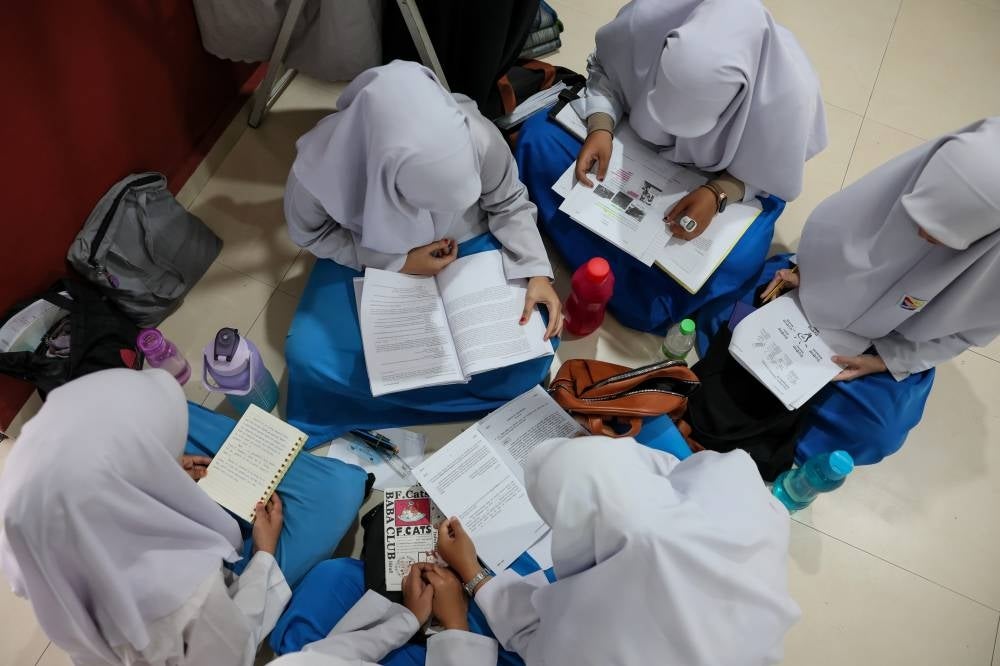Malaysia's education system faces crisis - Expert

KUALA LUMPUR - There's no denial that Malaysia is facing a crisis in its education system, said the National Professors Council Education and Human Capital Cluster secretary Dr Anuar Ahmad.
He highlighted the need to acknowledge that the education system fails to develop competent human capital.
"That is why when talking about the education system issue, we mention that we are in crisis, but perhaps the word crisis is too huge or frightening as if we are trying to make the situation worse than it actually is.
"But that is the reality of today. Our education system at Form 5 level fails to nurture a competent human capital structure," he recently said in a video posted on his Facebook.
The senior lecturer of the Center for Studies in Learner Diversity at Universiti Kebangsaan Malaysia (UKM) said the country's education system had many issues.
Among them were students deciding not to pursue higher education after sitting for Sijil Pelajaran Malaysia (SPM), failing in SPM, dropping out of school, and many students who didn't even finish their secondary school.
"Can we imagine what the future of our country's education system will be like if we refuse to make new changes, and don't want to reform the education system from preschool until university?
"We will face many challenges and competition from other countries. What will happen to the new generations and the human capital development? What will happen to our generations that are not highly knowledgeable, not competitive and so on?" he questioned
Last Thursday, the Education Ministry confirmed that nearly 30,000 registered candidates did not sit for SPM 2022.
More worryingly, 93,647 SPM candidates have not obtained the examination certificate for two years since 2020.
This raises questions about the future and direction of Malaysian youth.
Anuar said changes and reform were needed, starting from the early education level in preschool until the higher education level.
He stressed that if the matter persists, it will worsen and Malaysia will lag behind in various aspects.
"That is why I always suggest we review the country's education system, reform it and ensure every student finishes their studies from preschool to Form 5.
"Graduating secondary school with excellence and then able to continue their studies in university, college and so on.
"After that, they can become highly skilled human capital to serve our country," he said. Annuar said the large number of SPM graduates who didn't want to continue their studies at a higher level indicates something wrong with the country's education system.
The high failure rate in mathematics also poses a challenge to Malaysia's goal of becoming a developed country.
Anuar referred to the World Bank's report, which revealed a yearly decline in talent and highly skilled human resources in Malaysia.
"If we compare Malaysia to a developed country, we will find that we are still dependent on semi-skilled human resources, whereas to become a developed country, we need to be more dependent on skilled human resources.
"So to turn the unskilled or semi-skilled human resources into skilled human resources, one main condition is that workers need to obtain higher education and not just until secondary school level. They should graduate from university, college or other education institution," he said.
Immediate action is required to address the education system's shortcomings to avoid severe challenges in the future.
"If we don't make changes and let the education system remain as it is, the situation won't improve. It will get worse over time.
"Without changes, the number of dropouts and illiterate students will continue to rise, while teachers may retire early due to overwhelming burdens.
"The outdated curriculum hinders students' creativity, innovation, and enjoyment of learning, resulting in a reluctance to pursue education beyond SPM," he said. - AWANI










